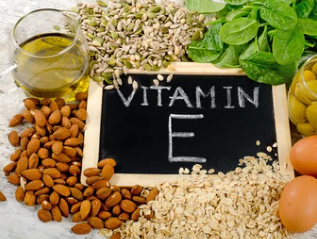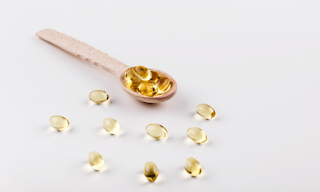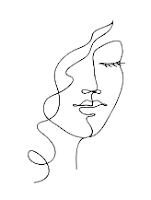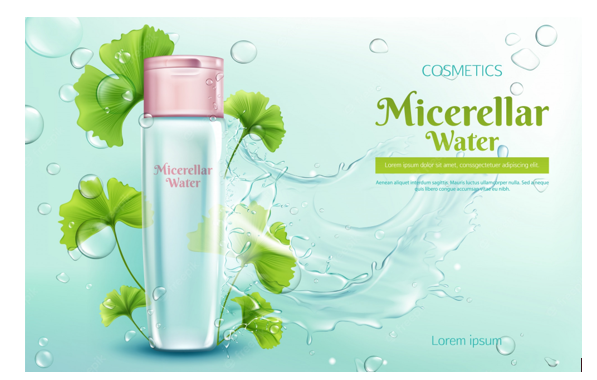Search This Blog
This site will provide you with all the latest blogs about ongoing trends like all about technology, health, fashion, information, and knowledge about everything you want to know completely free guide all info is shared which you want trends, beauty, and more!
Featured
- Get link
- X
- Other Apps
Vitamin E for Hair: Benefits, Uses, Safety, and More (2022)
Vitamin E
Introduction
Vitamin E is an antioxidant that can be applied to the body or taken orally to help prevent free radicals from damaging cells. Studies show that vitamin E may prevent hair loss and even help regrow new strands. It may also help moisturize a dry scalp to reduce itchiness and flaking. Vitamin E oil can be applied directly to your skin, but the best way to get enough is through diet. It's found in many foods, including nuts, seeds, leafy greens, oils, and fortified breakfast cereals (check labels). While there are no negative side effects of taking vitamin E orally (taking it by mouth), it can be dangerous if applied directly to your skin because it can slow wound healing and cause hyperpigmentation.
Vitamin E is an antioxidant that can be applied to the body or taken orally to help prevent free radicals from damaging cells.
Vitamin E is an antioxidant that can be applied to the body or taken orally to help prevent free radicals from damaging cells. Free radicals are unstable molecules that cause damage to human cells and tissues, which can lead to skin aging and other health problems.
Vitamin E is a fat-soluble antioxidant that helps fight inflammation in the body by neutralizing harmful molecules called reactive oxygen species (ROS). ROS are generated when you eat certain foods, exercise regularly, or get stressed out — all of which increase your risk for sun exposure. When these ROS enter your bloodstream they cause oxidative stress in various parts of your body including hair follicles where they cause damage over time resulting in brittle strands or breakage due to clogging pores at the root level (1).
Antioxidant properties of vitamin E may also slow the rate of skin and hair aging.
Vitamin E is an antioxidant that acts as a free radical scavenger, and it can be applied topically or taken orally. Antioxidants help to slow the aging process by protecting against free radicals that are produced when cells are damaged. Free radicals damage proteins, fats, and DNA in your body's cells, making them more susceptible to cancer-causing mutations.
Antioxidants can be found in food sources like vegetables and fruits; however, supplements may provide some of these same benefits without providing enough antioxidants for you to get all of the benefits from food sources alone.
Studies show that vitamin E may prevent hair loss and even help regrow new strands.
Vitamin E is a type of antioxidant that can be applied to the body or taken orally to help prevent free radicals from damaging cells.
It's believed that vitamin E may prevent hair loss, slow the rate of skin and hair aging, and regrow new strands.
A study conducted by researchers at Yale University tested whether topical application of vitamin E would improve hair growth in mice with alopecia areata (a condition where people lose their hair). They found that this treatment did indeed lead to increased length and thickness of their fur—and no signs of toxicity were observed either!
Another study found similar results when treating naturally thinning areas like edges between eyebrows or eyelashes with topical vitamin E cream twice daily for four weeks: "We observed significant improvements" including "reduction in both transepidermal water loss (TEWL) which helps retain moisture" as well as "increased skin hydration."Vitamin E oil.
It may also help moisturize a dry scalp to reduce itchiness and flaking.
Vitamin E is a powerful antioxidant that can help reduce the damage caused by free radicals. Free radicals are unstable molecules that cause damage to cells and tissues in your body, which may lead to problems like dry skin or hair loss.
When applied topically (to the skin), vitamin E oil can help moisturize your scalp and reduce itching and flaking while also protecting against harmful UV rays of sunlight. Topical application can be done using either drops or lotion-like creams; however, it's important not to apply more than 1 gram daily as this might cause adverse effects such as eye irritation or nausea if you have sensitive eyesight conditions like cataracts or glaucoma! For best results use twice daily - morning & night time after cleansing with shampoo first then conditioner second before applying treatment product such as serum type products containing natural ingredients like aloe vera gel extract which contains vitamins A & C compounds found naturally occurring within plants used for food production purposes ie carrots ribs celery etc...
Vitamin E oil can be applied directly to your skin, but the best way to get enough is through diet.
Vitamin E oil can be applied directly to your skin, but the best way to get enough is through diet. The fat-soluble antioxidant vitamin E has been shown to reduce the risk of hair loss and make hair stronger by preventing free radical damage caused by pollution, UV rays, and other environmental factors.
The main source of natural vitamin E comes from nuts like almonds and peanut butter (which are high in antioxidants). You may also find it in oils such as olive oil or sunflower seed oil. Some people take supplements containing synthetic forms of this nutrient called alpha-tocopherol acetate or alpha-tocopherol succinate. Vitamin E for Skin, you should also check.
It's found in many foods, including nuts, seeds, leafy greens, oils, and fortified breakfast cereals.
Vitamin E is found in many foods, including nuts, seeds, leafy greens, oils, and fortified breakfast cereals. The best sources include almonds (1 ounce=30 milligram), sunflower seeds (1 ounce=11 milligrams), avocado oil (1 tablespoon), and wheat germ oil.
But what about taking vitamin E supplements? They are available as capsules or tablets that can be swallowed with water or mixed into food like oatmeal or yogurt. Supplements should be taken only under a doctor's supervision because they can have side effects if taken without a prescription. Vitamin E information in audio if you wanna listen then check out.
While there are no negative side effects of taking vitamin E orally, it can be dangerous if applied directly to your skin.
While there are no negative side effects of taking vitamin E orally, it can be dangerous if applied directly to your skin. It's a fat-soluble antioxidant that can penetrate the skin and cause damage. It is also toxic if ingested in large doses (more than 150 mg/kg).
Applying vitamin E oil directly to skin or hair may actually slow wound healing and cause hyperpigmentation.
Vitamin E oil is a fat-soluble antioxidant, meaning it can be applied directly to the skin or hair without causing irritation. However, if you plan to apply vitamin E oil directly to your skin or hair:
Make sure you have tested this product on a small patch of skin before using it on larger areas (like your entire body).
If you have sensitive skin—for example, eczema or psoriasis—be careful about what products you use around these conditions; some might cause irritation when applied topically.
Vitamin E is a water-soluble and fat-soluble antioxidant that can be taken through food or supplements to help hair grow longer and smoother
Vitamin E is a powerful antioxidant that can be taken through food or supplements to help hair grow longer and smoother. The vitamin may also reduce the risk of developing cancer, heart disease, diabetes, and other illnesses.
Vitamin E is a water-soluble and fat-soluble antioxidant; this means it can be absorbed by the body in either form. In foods like spinach, Brussels sprouts, and almonds there are high amounts of alpha-tocopherol (a type of vitamin E) for your body to absorb easily into its cells where it acts as an anti-oxidant protecting them from damage caused by free radicals which are responsible for aging processes such as skin wrinkling or damage due to sun exposure.
Vitamin E sources i.e products.
Conclusion
Vitamin E has been linked with increased hair growth, which may be why many women use it. It's also important to note that your body isn't able to properly absorb vitamin E through skin or hair if you're taking high doses of it orally. For this supplement to work, you will need a healthy diet full of fruits, vegetables, and other foods rich in vitamin E. If you don't already know what these are then hopefully this article has given some insight into how beneficial they can be for yourself!
Vitamin E for hair complete information.
- Get link
- X
- Other Apps
Popular Posts
How to Get Free YouTube Subscribers (2022)
- Get link
- X
- Other Apps
The Beauty of Micellar Water: 6 Benefits and Uses
- Get link
- X
- Other Apps


.jpg)

.jpg)




.png)

Comments
Post a Comment